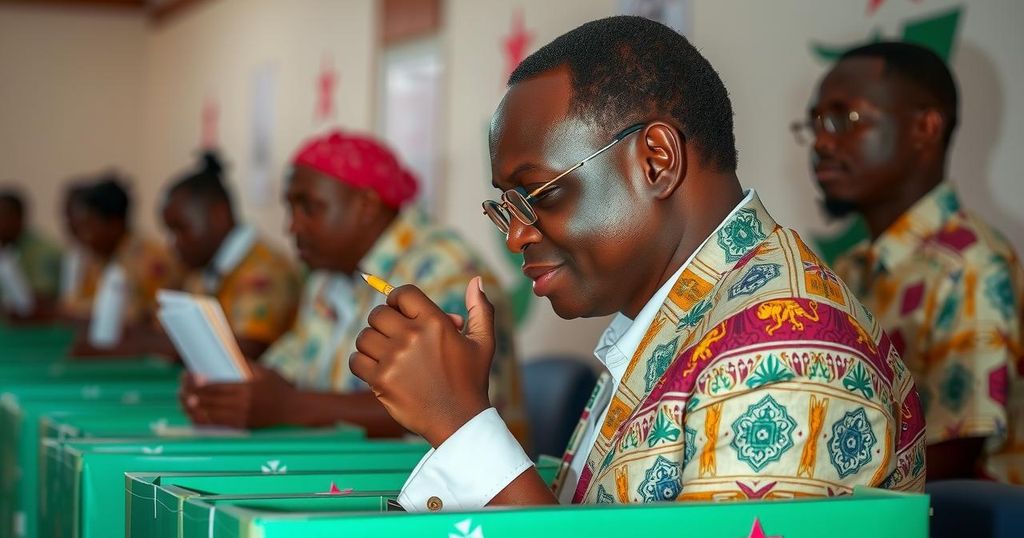Ghana’s upcoming presidential election pits former president John Dramani Mahama against Vice President Mahamudu Bawumia amidst an economic crisis marked by high inflation, poverty, and youth activism. The election is significant as it could reshape leadership responses to urgent economic and environmental challenges.
Ghana’s elections this Saturday present a pivotal moment for voters grappling with economic adversity. Facing a choice between returning former president John Dramani Mahama or endorsing current Vice President Mahamudu Bawumia, Ghanaians are driven by the urgent need to address mounting economic hardships. Known as Africa’s largest gold producer, Ghana is experiencing its most severe economic crisis in decades, characterized by soaring inflation, escalating national debt, and widespread poverty impacting its populace, particularly the youth, who recently protested against environmental degradation caused by illegal mining activities. The election, which features candidates from the two dominant political factions, the ruling New Patriotic Party (N.P.P.) and opposition National Democratic Congress (N.D.C.), could redefine economic strategies and address the pressing issues facing the nation, with a record number of first-time voters anticipated to influence the outcome significantly.
Ghana has historically been regarded as a beacon of democracy in West Africa since its independence. However, the recent economic turmoil, fueled by excessive borrowing, rampant inflation, and subsequent defaults on debt, has resulted in an increase in poverty levels and food insecurity. The upcoming presidential election comes in the midst of widespread discontent regarding governance and economic management, representing a critical juncture where voter preferences may pivot based on party performance and responsiveness to nationwide issues. The demographic shift, with young voters becoming increasingly involved, signals hope for change as Ghana navigates its current challenges.
In summary, Ghana’s impending election on December 7 serves as a crucial crossroads for the nation, allowing its citizens to select their leadership amid considerable economic challenges. Former President Mahama seeks to reclaim power after his previous defeat, while Vice President Bawumia endeavors to innovate solutions in light of his administration’s shortcomings. Voter engagement, particularly among the youth, will play an instrumental role in shaping the country’s future direction as the outcomes are anticipated to reflect the electorate’s response to pressing issues, including economic management and environmental conservation.
Original Source: www.nytimes.com







